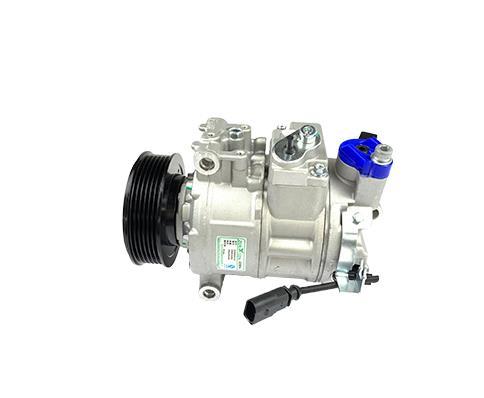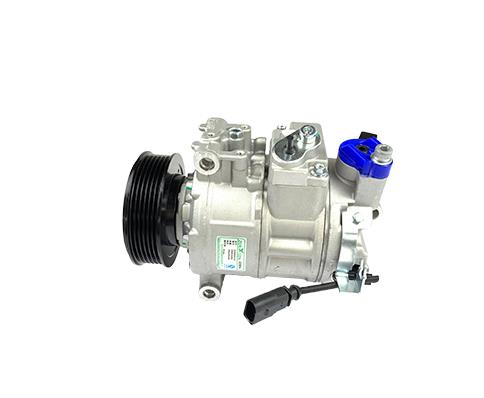
Improving the Stability of Automobile Air-Conditioning Compressors
Ensure optimal performance and longevity of your automobile air-conditioning compressor with these expert tips. Learn how to improve stability, enhance efficiency, and maintain passenger comfort.
ZHONGCHENG
Automobile air-conditioning compressors play a pivotal role in maintaining the comfort of vehicle occupants, particularly during scorching summers. However, ensuring their stability is crucial for uninterrupted performance and longevity. In this comprehensive guide, we delve into various strategies to enhance the stability of automobile air-conditioning compressors, ensuring optimal functionality and passenger comfort.
Understanding Automobile Air-Conditioning Compressors
Automobile air-conditioning compressors are mechanical devices responsible for pressurizing and circulating refrigerant within the air-conditioning system. This compression process enables the refrigerant to absorb heat from the vehicle's interior, resulting in cooler air circulation. A typical compressor consists of various components, including pistons, valves, and an electric motor, all working synchronously to maintain efficient operation.
Factors Affecting the Stability of Automobile Air-Conditioning Compressors
Several factors can impact the stability and performance of automobile air-conditioning compressors. These include:
1. Operating Conditions: Extreme temperatures, both high and low, can strain the compressor and affect its stability. Additionally, prolonged use under heavy loads or at high speeds can contribute to compressor wear and tear.
2. Refrigerant Levels: Incorrect refrigerant levels or contaminated refrigerant can impede the compressor's efficiency and lead to premature failure.
3. Lubrication: Inadequate lubrication within the compressor can result in frictional losses, overheating, and ultimately, compressor failure.
4. Vibration and Shock: Excessive vibration or shock during vehicle operation can damage compressor components, compromising stability and performance.
5. Maintenance Practices: Irregular maintenance, including neglecting filter changes, belt inspections, and lubrication checks, can accelerate compressor deterioration.

Strategies to Improve the Stability of Automobile Air-Conditioning Compressors
To enhance the stability and longevity of automobile air-conditioning compressors, the following strategies can be implemented:
1. Regular Maintenance and Inspection:
Implement a routine maintenance schedule, including inspections of refrigerant levels, lubrication systems, and compressor components.
Ensure timely replacement of air filters and inspection of drive belts to prevent strain on the compressor.
Conduct thorough checks for refrigerant leaks and address any issues promptly to maintain optimal performance.
2. Proper Refrigerant Management:
Use high-quality refrigerants recommended by manufacturers to prevent contamination and ensure efficient operation.
Monitor refrigerant levels regularly and recharge as necessary to maintain optimal pressure and temperature conditions within the system.
Implement proper evacuation and charging procedures during servicing to avoid introducing air or moisture into the system, which can damage the compressor.
3. Optimizing Operating Conditions:
Educate drivers on best practices for operating vehicle air-conditioning systems, such as avoiding prolonged use at maximum settings and reducing idling time in extreme temperatures.
Install auxiliary cooling systems or insulation to minimize heat transfer to the compressor during operation, particularly in high-temperature environments.
4. Vibration Dampening and Shock Absorption:
Install vibration dampeners or shock absorbers within the compressor mounting system to reduce the transmission of vibrations and shocks from the vehicle chassis.
Ensure proper alignment and balancing of compressor components during installation to minimize stress and vibration-induced damage.
5. Enhanced Lubrication Systems:
Utilize high-quality lubricants recommended by compressor manufacturers and adhere to specified lubrication intervals.
Implement advanced lubrication systems, such as forced lubrication or oil misting, to ensure consistent lubrication of compressor components, especially during high-speed operation.
6. Investment in Quality Components:
Source automobile air-conditioning compressors from reputable manufacturers known for producing durable and reliable components.
Prioritize quality in all compressor components, including pistons, valves, seals, and bearings, to minimize the risk of premature failure.
Conclusion
Ensuring the stability of automobile air-conditioning compressors is essential for maintaining passenger comfort and vehicle performance. By implementing proactive maintenance practices, optimizing operating conditions, and investing in quality components, automotive professionals can enhance compressor stability, prolong service life, and minimize the risk of costly repairs. By prioritizing the stability of automobile air-conditioning compressors, vehicle owners can enjoy consistent and reliable cooling performance, regardless of external conditions.
-
How to improve the cost-effectiveness of buying automobile air-conditioning compressors
 2021-04-27
2021-04-27
-
What are the classifications of automobile air conditioning compressors
 2021-04-27
2021-04-27






